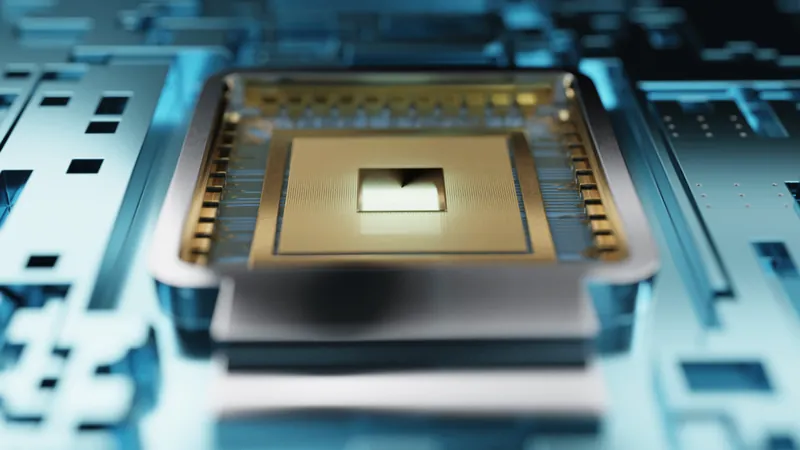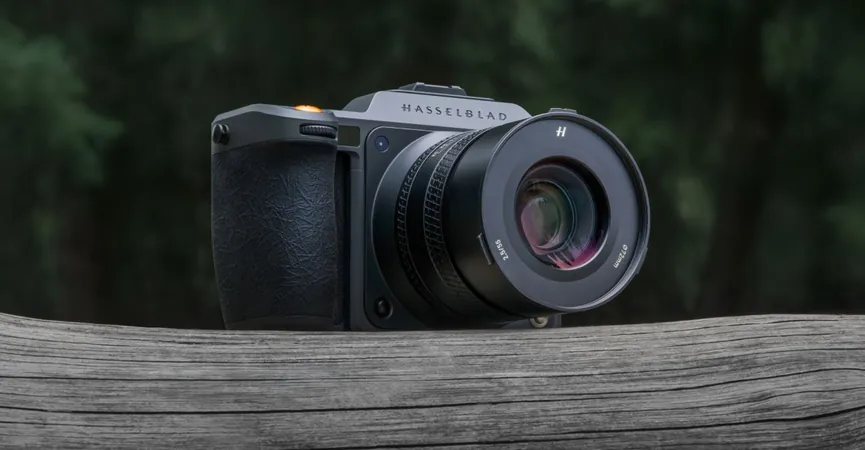
Quantum Computing Breakthrough: Scientists Achieve Record-Setting Error Rate of 0.000015%!
2025-07-28
Author: Yan
A Game-Changer for Quantum Technology
In an exciting advancement for quantum computing, scientists have recorded an unprecedented error rate of just 0.000015%, translating to one error for every 6.7 million operations. This remarkable milestone, reported in the journal APS Physical Review Letters, could drastically enhance the utility of quantum computers.
Revolutionizing Error Rates
This newly established error rate is nearly ten times better than the previous record held by the same research team in 2014, showing a significant leap in both performance and speed. Such improvements are crucial as high error rates, often referred to as 'noise,' can undermine the results of quantum calculations.
What Causes the Noise?
The 'noise' in quantum operations arises from various sources, including flaws in the computer’s architecture and the fundamental principles of physics. Among these, decoherence and leakage represent challenges that can’t be entirely eliminated but can be minimized.
Breaking New Ground in Quantum Control
Molly Smith, a co-lead author and graduate student at the University of Oxford, emphasized that reducing the likelihood of errors would lessen the need for extensive error correction infrastructure, making future quantum systems smaller, faster, and more efficient. The precision achieved in controlling qubits could also benefit other technologies, including highly accurate clocks and advanced sensors.
Innovative Use of Trapped Ions
The research employed a unique platform that utilizes trapped ions instead of the more conventional photon-based qubits, setting the stage for a new era in quantum computing. By operating at room temperature, the scientists simplified the technology's integration into functional quantum computers.
The Power of Microwaves
Instead of laser-based methods, the team used microwaves to trap calcium-43 ions in a hyperfine state similar to that found in atomic clocks. This innovative technique enabled greater precision in creating quantum gates, thereby enhancing the number of operations the computer could perform.
Automated Noise Correction
The research also introduced an advanced algorithm to automatically calibrate the ions against amplitude and frequency drifts caused by microwave controls. This breakthrough means that quantum operations can now be performed with near-zero errors, a goal long sought after in the field.
Implications for the Future of Quantum Computing
What does this mean for the future? With the potential to achieve single-gate operations with exceptional accuracy, the new approach may pave the way for more efficient quantum computers that require fewer qubits dedicated solely to error correction.
Challenges Ahead
However, this isn't the end of the road. Many quantum algorithms still require complex multigate qubit interactions, and errors persist at a rate of approximately 1 in 2,000 for these operations. While this research marks a significant step toward practical quantum computing, there are still considerable hurdles to overcome.


 Brasil (PT)
Brasil (PT)
 Canada (EN)
Canada (EN)
 Chile (ES)
Chile (ES)
 Česko (CS)
Česko (CS)
 대한민국 (KO)
대한민국 (KO)
 España (ES)
España (ES)
 France (FR)
France (FR)
 Hong Kong (EN)
Hong Kong (EN)
 Italia (IT)
Italia (IT)
 日本 (JA)
日本 (JA)
 Magyarország (HU)
Magyarország (HU)
 Norge (NO)
Norge (NO)
 Polska (PL)
Polska (PL)
 Schweiz (DE)
Schweiz (DE)
 Singapore (EN)
Singapore (EN)
 Sverige (SV)
Sverige (SV)
 Suomi (FI)
Suomi (FI)
 Türkiye (TR)
Türkiye (TR)
 الإمارات العربية المتحدة (AR)
الإمارات العربية المتحدة (AR)